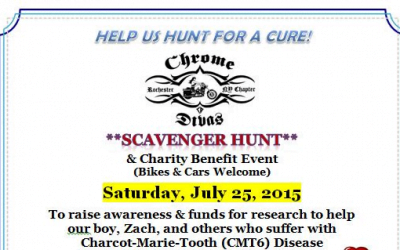 Ayse Deniz Elmali, MD is a neurologist and a researcher. Her never-ending intellectual curiosity has led her first to Istanbul University, Cerrahpasa Medical Faculty and then to residency at the same university. Being in love with the complexity of the human nervous system, she decided to specialize in neurology. As Hippocrates wrote “Wherever the art of Medicine is loved, there is also a love of Humanity.” Acknowledging her patients as her loved ones based on that quote, she decided to devote herself to trying to improve their lives. Since CMT and related inherited neuropathies cause a huge impact in patients’ daily lives, she developed a passion to understand these diseases further in order to find better ways to cope with them.
Ayse Deniz Elmali, MD is a neurologist and a researcher. Her never-ending intellectual curiosity has led her first to Istanbul University, Cerrahpasa Medical Faculty and then to residency at the same university. Being in love with the complexity of the human nervous system, she decided to specialize in neurology. As Hippocrates wrote “Wherever the art of Medicine is loved, there is also a love of Humanity.” Acknowledging her patients as her loved ones based on that quote, she decided to devote herself to trying to improve their lives. Since CMT and related inherited neuropathies cause a huge impact in patients’ daily lives, she developed a passion to understand these diseases further in order to find better ways to cope with them.
This study, which aims to uncover the rather unrecognized symptoms of Hereditary Neuropathy with Liability to Pressure Palsy (HNPP), was born from that passion: in order to get a clearer picture of HNPP, understand the patients better and find ways to help them more efficiently. A form of peripheral neuropathy, for those with HNPP even a short period of pressure can result in tingling, numbness, weakness, pain, or even paralysis of the affected area. Symptoms and their duration are variable, with palsies lasting from minutes to days, weeks, or even months.
HNF’s members are invited to take part in a special online scientific study that hopes to uncover the unrecognized symptoms of HNPP. This scientific study, approved by the committee of the Istanbul University, Cerrahpasa Medical Faculty, is being conducted by Dr. Elmaliat Istanbul University, Cerrahpasa Medical Faculty, Neurology Department.
HNF members are being asked to participate as the control group. CMT1A and HNPP patients, as well as healthy individuals, will be asked to complete a survey, which will take 30-40 minutes to complete, and will include demographic questions and five questionnaires to collect symptom information, including:
Checklist for individual strength, fatigue.
• Epworth sleepiness scale, addressing daytime sleepiness.
• ID-Pain, addressing pain.
• Beck depression inventory, monitoring depressive symptoms.
• SF-36, measuring quality of life.
If at any point you feel uncomfortable with a question, you can skip that question or withdraw from the study altogether. If you decide to quit at any time before you have finished the questionnaire, your answers will NOT be recorded. Your participation remains completely confidential: your answers will only be used for scientific purposes and will remain anonymous.
The study outcomes will be presented in educational settings and at professional conferences, and the results may be published in a professional journal in the field of neurology. Sharing the results with other professionals promotes an enhanced understanding of what those with HNPP are experiencing and how best to treat them.





I am a 35 year old American female with HNPP/CMT1A. They are one and the same. U was just diagnosed late summer of 2017. I wish I was diagnosed in time for this study. My palsies last for months. This last attack forced me to endure palsies for almost 2 years straight and the daily exhaustion is totally debilitating. There are about 326,000,000 people in the USA and about 15,000 of us have HNPP here in America. Very small percentage of the population.
I have hypermobility and a multitude of neuropathic symptoms. I suspect I may have HNPP. How do I get diagnosed? Insurance doesn’t cover genetic testing.